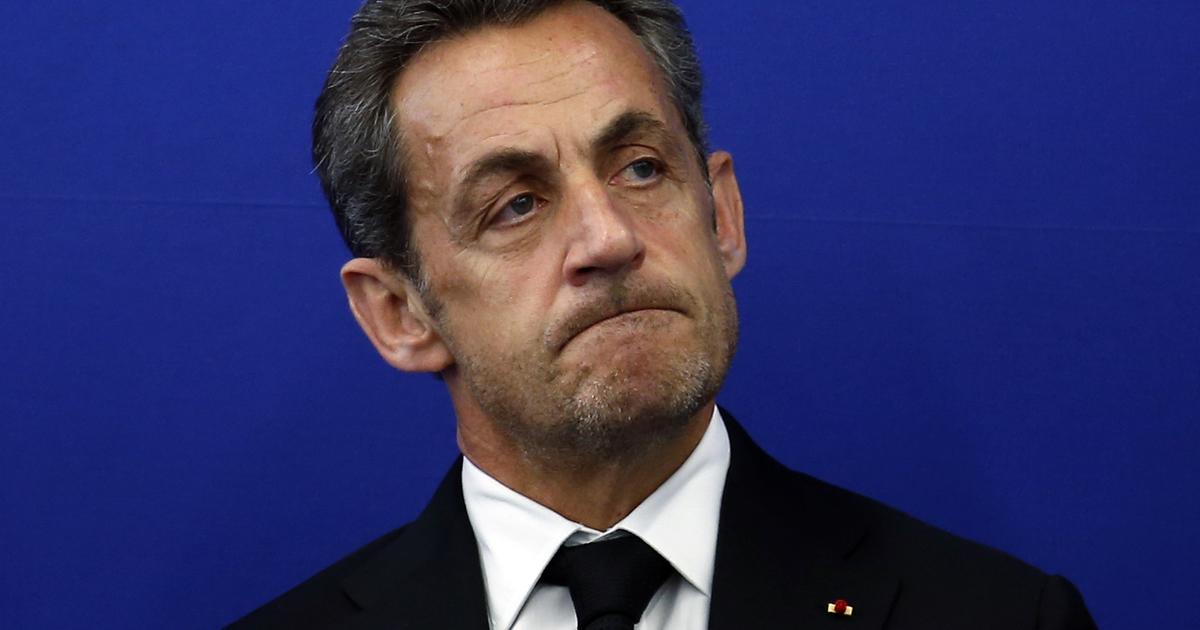
A Paris court on Monday found the former French president Nicolas Sarkozy guilty of corruption and influence peddling and sentenced him to one year in prison and two years in prison. The 66-year-old politician, who was president from 2007 to 2012, was convicted of trying to illegally obtain information from a senior magistrate in 2014 about a lawsuit in which he was involved.
REUTERS
The court said Sarkozy has the right to apply to be detained at home with an electronic wristband.
This is the first time in modern French history that a former president has been convicted of corruption.
Sarkozy’s co-accused – his lawyer and lifelong friend Thierry Herzog, 65, and retired magistrate Gilbert Azibert, 74 – were also found guilty and sentenced to the same sentence as the politician.
The court found that Sarkozy and his co-defendants sealed a “corruption pact” based on “consistent and serious evidence.”
The court said the facts were “especially serious” as they were committed by a former president who used his state to help a magistrate who had served his personal interest. In addition, as a trained attorney, he was “perfectly informed” of committing an illegal action, the court said.
Sarkozy had firmly denied all charges against him during the ten-day trial that took place late last year.
The corruption process focused on the telephone conversations that took place in February 2014.
The investigating judges had then launched an investigation into the financing of the 2007 presidential campaign. During the investigation, by the way, they discovered that Sarkozy and Herzog were communicating via secret mobile phones registered with the alias “Paul Bismuth “.
The conversations overheard on these phones led prosecutors to suspect that Sarkozy and Herzog promised Azibert a job in Monaco in exchange for leaking information about another legal case, known as France’s richest woman, l L’Oreal’s heiress, Liliane Bettencourt.
In one of those calls with Herzog, Sarkozy said of Azibert, “I’ll get him up … I’ll help him.”
In another, Herzog reminded Sarkozy to “say a word” for Azibert during a trip to Monaco.
In the Bettencourt case, court proceedings against Sarkozy have been withdrawn. Azibert never got the job in Monaco.
Prosecutors have concluded, however, that the “clearly stated promise” in itself constitutes a crime of corruption under French law, even if the promise is not fulfilled.
Sarkozy vigorously denied any malicious intent.
He told the court that his political life consisted of “giving help to the people. That everything is a bit of help,” he said during the trial.
The confidentiality of communications between a lawyer and his client was one of the main points in dispute in the process.
“You have in front of you a man whose more than 3,700 private conversations have been overheard … What have I done to deserve it?” Sarkozy said during the trial.
Sarkozy’s defense attorney, Jacqueline Laffont, argued that the entire case was based on “small conversations” between a lawyer and his client.
The court concluded that the use of wiretapping conversations was legal as long as they helped show evidence of corruption-related crimes.
Sarkozy retired from active politics after not being elected candidate for the presidency of his Conservative party for the 2017 French elections, won by Emmanuel Macron.
Still, he remains very popular among right-wing voters and plays an important role behind the scenes, even maintaining a relationship with Macron, who is said to advise on certain issues. His memoirs published last year, “The Time of the Storms,” were a bestseller for weeks.
Sarkozy will face another trial later this month along with 13 other people accused of illegally funding his 2012 presidential campaign.
His Conservative party is suspected of having spent 42.8 million euros ($ 50.7 million), almost double the maximum allowed, to fund the campaign, which ended in victory for socialist rival Francois Hollande.
In another investigation opened in 2013, Sarkozy is accused of taking millions from then-Libyan dictator Moammar Gadhafi to illegally fund his 2007 campaign.
He was charged with passive corruption, illegal campaign financing, concealment of stolen property in Libya and criminal association. He denied the foul.
